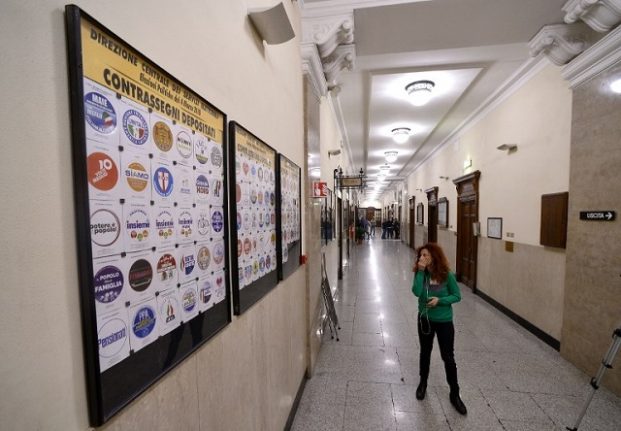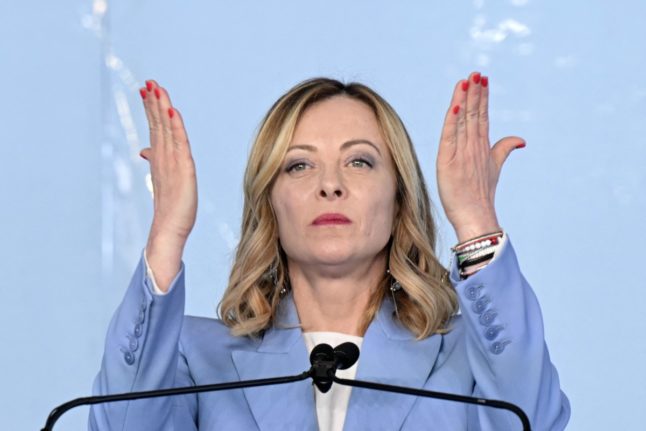The country heads to the polls on March 4th to elect its representatives in the lower house Chamber of Deputies and upper house Senate.
But with a fragmented political landscape and a complicated new electoral law in place that mixes proportional representation with first-past-the-post, the country could wake up on Monday to any one of a variety of scenarios.
Here's a look at what could happen.
A right-wing coalition
“It is unlikely that any of the three main contenders will be able to obtain a majority, but there is only one that can, and it's the right,” says Roberto D'Alimonte, Director of the Political Science Department of Rome's Luiss University.
The right-wing coalition brings together four parties, the biggest of which are Silvio Berlusconi's centre-right Forza Italia (FI) and the far-right League.
An agreement between Berlusconi and League leader Matteo Salvini says that whoever comes first of the two parties will lead the government, should the coalition win a majority.
Banned from public office thanks to a tax fraud investigation, Berlusconi has said in that scenario, and with FI the bigger of the two main parties, he would like to see Antonio Tajani lead the government. However, Tajani has not yet said whether he is ready to give up the presidency of the European Parliament.
If the League comes out on top, Salvini will be premier, assuming that Berlusconi keeps his word and lines up behind him.
READ MORE:
- Is Italy's League a far-right party?
- What are the reasons for Silvio Berlusconi's enduring popularity?
- Who is Matteo Salvini? The rebranded nationalist leading Italy's League
- Inside a campaign event with Berlusconi's supporters

Berlusconi with coalition allies Giorgia Meloni and Salvini. Photo: Livio Anticoli/AFP
A grand coalition
Brussels is betting on a German-style grand coalition between FI and the centre-left Democratic Party (PD), both pro-EU parties. Neither Berlusconi nor PD leader Matteo Renzi have dared suggest that they might enter into such an agreement during the election campaign, but it is exactly what happened after the last general election in 2013.
The website Votewatch Europe notes that FI's representatives in the European Parliament have voted with the PD 76 percent of the time, but only 36 percent of the time with the League. However, there is no guarantee that the PD, FI and their Europhile allies — perhaps even boosted by defectors from the League who have little taste for their party's recent nationalist rebrand — will obtain enough votes to gain a majority in the upper and lower houses.
Another hypothesis, and one denied even more vigorously, is a eurosceptic alliance between the League and anti-establishment Five Star Movement (M5S). But that partnership would also not be guaranteed to pick up enough votes and would be subject to fierce internal opposition from within both parties.
It would also run counter to the conciliatory tone recently offered towards the EU by M5S leader Luigi Di Maio, a shift from the instinctive euroscepticism of party founder Beppe Grillo.
READ MORE:
- Who is Matteo Renzi?
- Luigi Di Maio: The fresh face of Italian populism
- How the M5S is wrecking government hopes for the mainstream
- Is the Five Star Movement still 'anti-establishment'?

Photo: Piero Cruciatti/AFP
No parliamentary majority
The last available polls from mid-February gave the right-wing coalition 38 percent of voting intentions (of which 17 percent went to FI and 13 to the League), 28 percent to M5S and 26 percent to the centre-left coalition led by the PD, but with millions still undecided.
If there is no new majority in parliament, Paolo Gentiloni will remain as prime minister. In the meantime President of the Republic Sergio Mattarella will consult the various parliamentary groups to see if there is a figure who can command a majority, and if not, new elections could be called.
Regardless of the outcome, the procedure will take its time. The two chambers will meet for the first time on March 23rd to form groups in the Chamber of Deputies and Senate to elect the president of each house.
READ MORE: Everything you need to know about the Italian election
By Ljubomir Milasin




 Please whitelist us to continue reading.
Please whitelist us to continue reading.